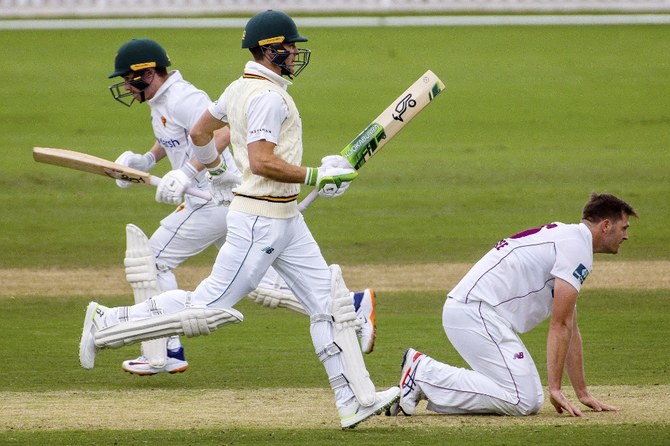Every cricketing country seems to want to win all competitions all of the time. At least this is what appears to be the case if public pronouncements by some national cricket boards are to be believed.
This is simultaneously alluring and aspirational, despite evidence that at times during cricket’s history some teams have dominated all others.
The West Indian men’s team won the 50-over World Cup in 1975 and 1979 whilst, between 1984 and 1991, it did not lose a Test series. After that, Australia became the dominant men’s team, going unbeaten in all Ashes series until 2005, and achieving a hat trick of World Cups in 1999, 2003 and 2007. Currently, it holds the T20I World Cup and tops the table of Test-match-playing countries.
Throughout this time, India has been straining to achieve dominance, but has failed. Its last 50-over World Cup triumph was in 2011, its last T20I World Cup triumph was in 2007 and it last reached a final in 2014, losing to Sri Lanka. In these respects, its record of achievement is inferior to the West Indies, which has twice won the T20I Cup and on a par with Pakistan, Sri Lanka, Australia and England. Neither South Africa nor Bangladesh has featured in a final of either format.
At Test level, India came second in the 2019-2021 cycle of performance to New Zealand, who suffered defeat in the finals of the 2015 and 2019 ODI World Cup and the 2021 T20I World Cup.
All of this suggests that the major trophies are shared around over a 10- to 20-year cycle. There are complex reasons why this happens. Successful sides grow old together and the transition takes longer than planned. A raft of injuries to key players prematurely weakens the team. Internal politics stunt performance, as may inappropriate selections, strategies or coaching qualities. The next generation of talent may take up alternative sports, as happened in the West Indies.
One other potential explanation is that the domestic structure is out of keeping with the times. National cricket boards are entrusted with providing the structure whereby talent is identified, nurtured and shaped into national teams. Within this structure lie regional bodies whose responsibility is to achieve the same in their designated area, providing a funnel through which the most talented players can progress to national level.
Recently, in the wake of a disastrous series in Australia, the England and Wales Cricket Board, or ECB, published a High-Performance Review of the men’s team. Its starting point is that, over the last 42 years, the team has been the No. 1 Test team in the world for a total of 12 months, No. 1 in ODIs for 64 months and has held top place in T20I cricket for the equivalent of two years since 2011. This is perceived to be a sub-optimum outcome.
Seventeen recommendations have been proposed, including changes to structure, to support a new vision. This is to be, in five years, the world’s best men’s team across all formats, defined as being No. 1 in at least one format, top three in the others and sustaining this for a long time.
It may safely be assumed that such ambition is shared by a number of other Test-playing teams and national boards. Only the ECB has a structure which does not follow the three predominant formats — multi-day matches, ODIs and T20s. Although India and Pakistan have retained domestic T20 competitions alongside T20 franchised tournaments, it is because their depth of talent allows this to happen. The ECB justifies its decision to introduce The Hundred, a format played in no other country, in terms of attracting a different segment of the market — women and young children.
One of the High-Performance Review’s conclusions was that too much cricket is being played. On the back of this, the ECB propose to reduce the number of matches in all competitions except The Hundred. Separation of the 18 first-class counties into three divisions of six is predicated on the basis that it will allow the best to play against the best. This is an objective which underpins the structures found in other countries.
Australia has only six States, so can aspire to this more easily, as can New Zealand with six teams and West Indies with seven. In 2019, a structural reorganization in Pakistan replaced a departmental, city and regional team structure with six regional teams to encourage “best versus best,” an unpopular move with departments.
Sri Lanka Cricket, with a similar objective in mind, introduced a revised structure this year. A National Super League was created, consisting of five teams selected from players who had competed in a prior 26-team Major Clubs Tournament.
Conversely, in 2021, Cricket South Africa reverted to a 15-team provincial structure, which had been replaced in 2004-2005 by a six-team franchised system. India’s domestic structure, apart from the franchised Premier League, has remained constant since each major competition was founded.
A slight tendency toward a narrow top structure of five to six teams may be discerned from the above, but it may reflect circumstances of geography, as much as deliberate strategy. What all of the Boards share in common is the problem of fitting in the requisite number of matches to fulfil national and international agreements, plus T20 franchises. As schedules continue to adapt to a post-pandemic environment, narrow structures may be best for the times.
It is ironic that since the ECB’s review was launched, its men’s team performances have improved significantly. This is a result of changes in leadership and strategy, drawing from the same talent pool that was available previously, produced by the structure deemed to be inadequate. The effects of alterations to structures can take years to become apparent. It would be wise for any Board with lofty aspirations to acknowledge this, along with recognition that dominance across all formats for a sustained time is rare and getting more difficult.
















